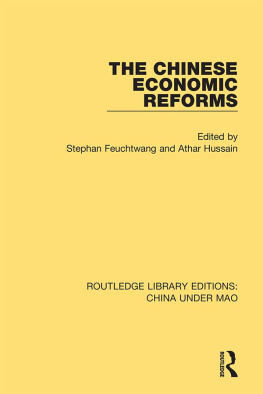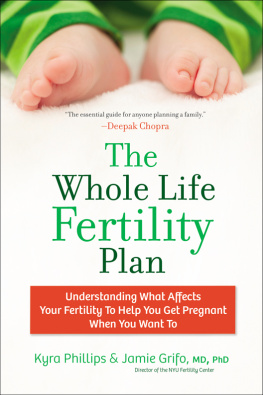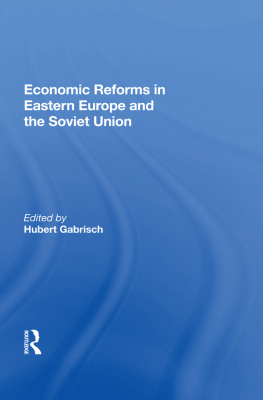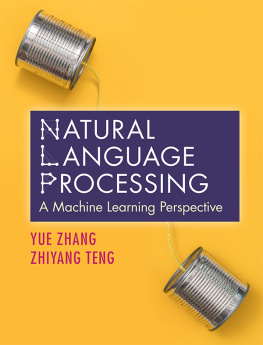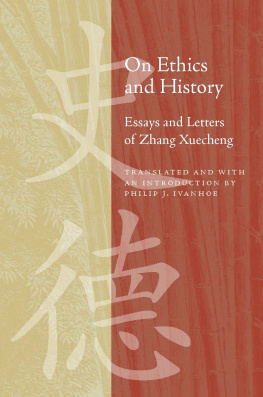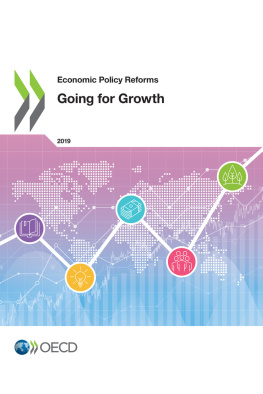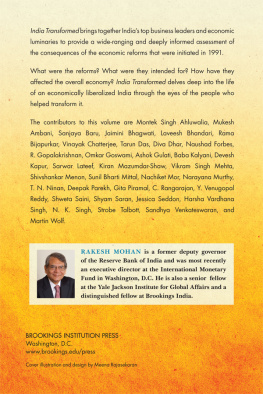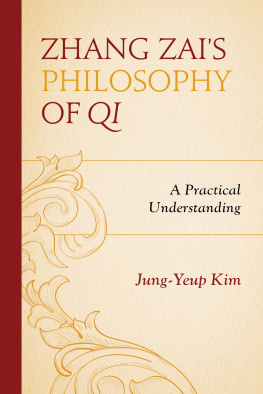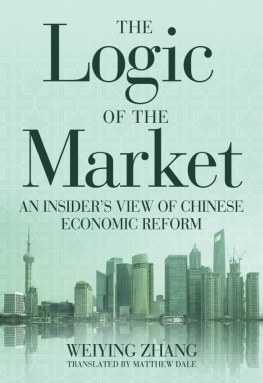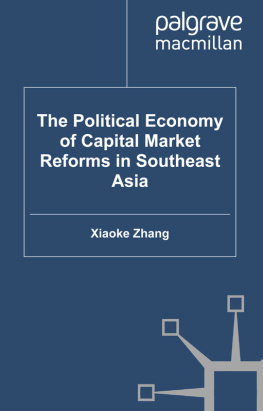CHINESE ECONOMIC REFORMS AND FERTILITY BEHAVIOUR: A STUDY OF A NORTH CHINA VILLAGE
First pubished in 2002 by China Library
This edition published 2013 by Routledge
2 Park Square, Milton Park, Abingdon, Oxon OX14 4RN
711 Third Avenue, New York, NY 10017
Routledge is an imprint of the Taylor & Francis Group, an informa business
Chinese Economic Reforms and Fertility Behaviour
A Study of a North China Village
2002 Zhang Weiguo
All rights reserved. No part of this publication may be reproduced, stored in a retrieval system, or transmitted in any form or by any means, without prior permission from the Publishers in writing except for the use of short extracts in criticism.
British Library Cataloguing in Publication Data
A CIP catalogue entry for this book is available from the British Library
ISBN 1-873410-49-2
Typeset in Stone 9pt on 11 by Mark Heslington, Scarborough, North Yorkshire
T his book comes out of a PhD project on rural Chinese reforms and fertility at the Institute of Social Studies, The Hague, The Netherlands. I owe special thanks to my supervisors, Professor Marc Wuyts and Professor Frans Willekens, who provided me with valuable comments, guidance and encouragement. I wish to thank my local supervisor, Professor Feng Litian, who gave me many valuable comments and much needed support during my year-long fieldwork in China. I am grateful to Professor Ashwani Saith and Professor Geoffrey McNicoll for their detailed comments. The fellowship provided by the Institute of Social Studies for the study, and the facilities provided by the Capital University of Economics and Business (then the Beijing College of Economics) during my fieldwork are very much appreciated.
I wish to thank Professor Ben White and Professor John Cleland, who gave me valuable and critical comments on my initial research design. My thanks go as well to Dr Bridget OLaughlin, who went through many of my chapters and gave me comments despite her busy schedule. I also owe my thanks to numerous staff members of the Institute of Social Studies for their comments and encouragement during various stages of the study. Among the many I could mention, I wish to thank Dr Gabriele Dankert, Dr Eric Ross, Dr Mahmood Meskoub, and Dr Aurora Galindo, Linda McPhee, and Joy Misa.
This study also benefited from comments I received on conference papers and journal articles based on my dissertation project. I particularly wish to thank Professor William Lavely, Professor William Skinner, Dr Thanh-Dam Truong, Dr Peng Xizhe, Dr Govind Kelkar, Professor Tim Dyson, Dr Ines Smith, Professor Elisabeth Croll, Dr Flemming Christiansen, Dr Zhang Junzuo, Dr Joan Kaufman, Dr Hadgu Bariagaber, and many anonymous readers for their valuable comments. I am grateful to Dr Griffith Feeney, who gave me valuable comments on my application of parity progression ratio in the analysis in of the thesis.
I wish to thank the staff members of various libraries, especially the libraries of the Institute of Social Studies, the Sinological Institute at Leiden University, the Netherlands Interdisciplinary Demographic Institute, and the Institute of Population and Economics of the Capital University of Economics and Business for the generous help and cooperation.
I am grateful to Mona Mehta, Imani Tafari-Ami and Dr Skye Hughes for their correction of my English of my draft chapters, conference papers and journal articles, and Linda McPhee for her professional editing of my PhD thesis.
I am grateful to Dr Mohammed Mazouz and Dr Patrick Molutsi, the coordinator of the Global Training Programme in Population and Sustainable Development and director of the project at the University of Botswana, for their continuous encouragement.
Above all, my thanks go to the village cadres and people, whose cooperation with my year-long fieldwork in the village is very much appreciated. Special thanks go to my host family, who treated me as one of the family and helped me in many ways to understand the life of the village people in general and their family lives in particular. Many thanks go to county and township officials and people who helped my investigation in the county town and assisted my selecting and settling down in the research village. My thanks also go to my survey assistants for collection of the quantitative data and many institutions and individuals in China who provided facilities and help inputting the data. Without their assistance I cannot imagine how I would have completed my fieldwork.
My wife Liu Yan helped me greatly during my fieldwork and shared with me the joy and distress during my research programme. My parents and my brother and sisters family showed their support and concern throughout the years of my study, and did their best to offer help during my fieldwork. My newly born son, Zhang Yifei, added a lot of joy and happiness to the family while I was busy with modification of the thesis into the present book.
Briefer version of appeared in Rural Women and Reform in a North Chinese Village. In Flemming Christiansen and Junzuo Zhang, eds. Village Inc. Chinese Rural Society in the 1990s, Curzon, Richmond, 1998, pp. 193211.
Zhang Weiguo
T his study is based on both empirical and theoretical considerations. Empirically, many scholars remain puzzled about the causal process underlying the Chinese fertility decline experienced in the last few decades. Theoretically, the puzzle of Chinese fertility decline in particular, and of human fertility transition in general, is related to the fact that many existing fertility studies ignore or fail to incorporate the social context of fertility behaviours.
This research adopts an institutional approach to fertility studies through an intensive study of a village in Northern China. Its object of inquiry is political economy. This study is to situate fertility within a historical and institutional perspective of development and change in rural China and within the context of the culture and political economy of Chinese society. Theretically, it is based on the consideration that the main fertility theories that locate fertility at different levels of macro- and micro-analysis do not incorporate the institutional context in their analyses. Classical demographic transition theory assumes invariant institutions that the functions of institutions and the principles governing demographic change are seen as uniform even for different societies. Microeconomic fertility theory assumes inevitable institutions that all non-neoclassical explanations of human behaviour are thus shunned. I argue that a clearer understanding of human fertility cannot be achieved when individuals are assumed to rationalize their behaviour in the same way, independent of context, or when human fertility is seen as a result of socially determined processes only at the aggregate level without consideration of the individuals who are making such processes. Social demographers try to link socio-economic factors and fertility and they adhere that macro socio-economic factors must work to affect fertility through intermediate fertility variables. However, the model of intermediate variables of fertility fails to recognize that the nature of the effect of macro socio-economic factors on fertility is filtered as well as reshaped by existing social institutions.





